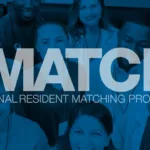Pursuing a medical education in the Caribbean represents a unique opportunity for students worldwide. With its diverse range of medical programs, the Caribbean offers an alternative path to those seeking to enter the field of medicine. This article delves into the various facets of Caribbean medical education, from understanding the educational landscape to financial planning, clinical experience, and the strategic advantages of studying in places like Grenada. The key takeaways provide a concise overview of the essential points to consider when exploring medical education options in the Caribbean.
Key Takeaways
- Caribbean medical schools offer diverse programs and provide a pathway to practice in the U.S. and U.K., with a potentially faster entry compared to traditional routes.
- Financial planning is crucial due to the potentially higher costs of education in the Caribbean, but with the benefit of superior international exposure and return on investment.
- Safety and support services for international students are prioritized, ensuring a secure learning environment with necessary resources.
- Clinical rotations in prestigious U.S. and U.K. hospitals contribute to high USMLE pass rates and enhance the residency placement success of Caribbean medical graduates.
- Admissions to Caribbean medical schools are merit-based, ensuring a fair and transparent selection process, with support for students wishing to return to their home countries to practice.
Understanding the Caribbean Medical Education Landscape

Diversity of Medical Programs
The Caribbean is home to a rich tapestry of medical schools, each offering a unique blend of programs tailored to meet the educational aspirations of a diverse student body. From traditional MD tracks to innovative joint-degree options, the region’s institutions cater to a wide range of academic backgrounds and career objectives.
The diversity of medical programs in the Caribbean is a testament to the region’s commitment to accessible and inclusive medical education. Students can choose from various course formats, including full-time, part-time, and online/distance learning, ensuring flexibility to accommodate different learning styles and life circumstances.
- Cuba, with its 285-year tradition in medical training, has graduated over 100,000 physicians from more than 80 countries, reflecting the international appeal and inclusivity of Caribbean medical education.
- The American University of the Caribbean School of Medicine boasts a class with 29.67% of students from diverse backgrounds, highlighting the multicultural learning environment.
By considering alternative pathways, students can tailor their medical education to align with their career goals and personal circumstances.
Accreditation and Recognition
The accreditation of medical schools in the Caribbean is a critical factor for students to consider before enrollment. It serves as a benchmark for educational quality and determines the global recognition of the degree. The Caribbean Accreditation Authority for Education in Medicine and other Health Professions (CAAM-HP) is the legally constituted body established to accredit medical programs. This process ensures that medical schools meet established standards of structure, function, and performance, which are essential for producing competent graduates.
When selecting a Caribbean medical school, it is important to verify that the institution is accredited by CAAM-HP or a similar recognized body. Accreditation not only influences the eligibility for licensure in various countries but also affects residency placement prospects. Prospective students must diligently research each school’s accreditation status to ensure their future qualifications will be accepted where they intend to practice medicine.
Accreditation is not just a formality; it is a reassurance of quality and a gateway to professional recognition.
Here is a list of considerations for students evaluating the accreditation of Caribbean medical schools:
- Confirm the school’s accreditation status with CAAM-HP or equivalent.
- Check for recognition by the World Directory of Medical Schools.
- Investigate if graduates are eligible for licensure exams in the United States, Canada, and the UK.
- Understand the implications of accreditation on residency match rates and employment opportunities.
Admission Criteria and Processes
The journey to a medical career in the Caribbean begins with understanding the admission criteria and processes of your chosen institution. Prospective students must navigate a series of steps, from submitting an application complete with academic transcripts and passport copies to proving English proficiency, if required. A critical component is the eligibility criteria, which often includes a minimum age requirement and educational prerequisites such as a Bachelor’s degree or equivalent credits.
Eligibility Criteria:
- Minimum age of 18 upon arrival
- Bachelor’s degree or at least 90 undergraduate credits
The admission process is a gateway to global education opportunities, and understanding it is essential to your success.
Financial considerations, such as the ability to cover tuition and living expenses, are also examined during the admissions process. Students must be prepared to provide financial documents and obtain a student visa, which involves additional steps like securing medical insurance and other relevant paperwork.
By considering alternative pathways, students can tailor their medical education to align with their career goals and personal circumstances.
Comparing Caribbean Schools with Global Standards

Curriculum and Clinical Training
Caribbean medical schools offer curricula that are often comparable to those found in North American institutions, ensuring that students receive an education that aligns with global medical standards. The emphasis on hands-on clinical training is a cornerstone of these programs, providing students with the practical skills necessary for a successful medical career.
Taught stage modules include Medicine and Health Sciences, Politics and International Relations, and Sociology and Policy, among others. These foundational courses are complemented by a dissertation stage and opportunities for specialization, which allow students to tailor their education to their career aspirations.
By considering alternative pathways, students can tailor their medical education to align with their career goals and personal circumstances.
Clinical rotations are a critical component of the medical education in the Caribbean. Students have the chance to gain experience in a variety of healthcare settings, often including prestigious hospitals in the US and UK. This exposure not only enhances clinical skills but also contributes to higher USMLE pass rates and better residency match prospects.
USMLE Pass Rates and Residency Matches
Caribbean medical schools have become a popular choice for students aiming to practice medicine in the United States. A critical measure of a medical school’s success is its students’ performance on the United States Medical Licensing Examination (USMLE) and their subsequent match rates into residency programs. High USMLE pass rates and successful residency matches are indicative of the quality of education and preparation provided by the institution.
The journey to becoming a licensed physician in the U.S. is marked by the pivotal step of passing the USMLE and securing a residency match.
Caribbean medical schools report varying USMLE pass rates and residency match rates, which are essential factors for prospective students to consider. Here is a brief overview of the performance statistics:
- Average USMLE Step 1 Pass Rate: 95%
- Average USMLE Step 2 CK Pass Rate: 96%
- Average Residency Match Rate: 90%
These figures demonstrate the commitment of Caribbean medical schools to equip their students for success in the highly competitive medical field. However, it is important to note that individual results may vary, and students should diligently research each school’s specific outcomes.
Cost of Education and Return on Investment
When evaluating the cost of medical education in the Caribbean, it’s crucial to consider both the immediate financial implications and the long-term return on investment. Tuition fees for Caribbean medical schools are often more affordable than those in the US or UK, with the potential for a significant return on investment through global career opportunities. Caribbean medical schools offer affordable tuition, diverse clinical rotations, and recognized programs with international exposure, preparing students for global medical practice and career success.
Caribbean medical schools provide competitive tuition fees, which can be a deciding factor for many students. Here’s a brief overview of the financial aspects:
- Annual tuition fees for international students typically range from $8,000 to $60,000 USD.
- Additional costs include living expenses, books, and insurance.
- Payment options may include full payment upfront or termly instalments.
- Scholarships and financial aid are available to help manage these costs.
The decision to study medicine in the Caribbean should be based on a combination of cost-effectiveness, educational quality, and long-term career goals.
Prospective students must conduct detailed research and consult with educational advisors to make an informed decision. By considering the total cost of education, including tuition and living expenses, and weighing it against the quality of education and future earning potential, students can strategically plan their medical careers.
Financial Planning for Medical Studies in the Caribbean

Tuition Fees and Living Expenses
Financial planning for medical studies in the Caribbean involves understanding program costs, budgeting for expenses, comparing costs with other countries, and seeking scholarships and financial aid opportunities. Tuition fees for medical programs can vary significantly, and when combined with living expenses, the total cost can be substantial. Here’s a snapshot of the average annual tuition fees for international students:
| Level of Study | Tuition Fee Range (USD) |
|---|---|
| Undergraduate | $8,000 – $40,000 |
| Postgraduate | $10,000 – $60,000 |
| Doctoral | $28,000 – $55,000 |
Living expenses, which include accommodation, food, and transportation, are additional costs that must be factored into your budget. It’s essential to research and account for these when planning your finances.
Creating a comprehensive budget that includes tuition, accommodation, food, transportation, and other personal expenses is essential. This financial planning will help in making informed decisions about which schools to apply to and how to manage finances throughout the medical program.
While scholarships and financial aid can significantly reduce the burden, they are highly competitive. It is advisable for students to explore all financial aid options early in their application process. Additionally, some medical schools offer work-study programs to help students finance their education while gaining valuable experience.
Scholarships and Financial Aid
Securing financial aid is a critical step for students aiming to study medicine in the Caribbean. Scholarships and financial aid can significantly reduce the burden of high tuition fees and living expenses. Early research and application for these opportunities are crucial, as they can be highly competitive. Utilize resources like university financial aid offices and online databases to find scholarships tailored to your needs.
Types of Financial Aid Available:
- Need-based scholarships
- Merit-based scholarships
- College-specific scholarships
- Country-specific scholarships
Financial planning is not just about covering costs, but also about exploring opportunities for scholarships and financial aid to ease the burden. By thoroughly estimating the costs and exploring financial aid options, students can take a step closer to realizing their medical education goals in the Caribbean.
Financial constraints are real, but so are scholarships. Many students miss out on available financial aid because they don’t look for it or assume they won’t qualify.
Budgeting and Managing Costs
Effective financial planning for Caribbean medical education is not just about understanding the costs; it’s about creating a strategy to manage them. Developing a comprehensive budget is crucial for prospective students. This budget should include all expected expenses, such as tuition fees, accommodation, food, transportation, and other personal costs. By doing so, students can avoid unexpected financial challenges and focus on their studies.
Financial planning for Caribbean medical education involves understanding tuition and living expenses, exploring scholarships, and creating a comprehensive budget to manage finances effectively. To aid in this process, consider the following steps:
- Research and compare tuition fees and living expenses across different schools.
- Identify potential scholarships, grants, and loan opportunities.
- Plan for additional costs, such as books, insurance, and travel.
- Consider part-time employment or savings to supplement income.
A well-structured financial plan is the backbone of a stress-free educational journey. It enables students to make informed decisions and provides a clear picture of the financial commitment required.
Remember, the goal is to ensure that financial considerations do not become a barrier to accessing quality medical education in the Caribbean. With careful planning and management, students can turn their dreams of studying medicine in paradise into a reality.
Clinical Experience and Residency Prospects

Clinical Rotation Opportunities
Clinical rotations are a pivotal aspect of medical education, providing students with hands-on experience in a real-world medical setting. The quality and organization of these rotations can significantly influence a student’s education and future career prospects. Caribbean medical schools offer a variety of clinical rotation opportunities, often in partnership with hospitals in the United States and the United Kingdom. This international exposure is invaluable, allowing students to work alongside experienced professionals and engage with diverse patient populations.
Clinical rotations in the Caribbean are designed to equip students with the practical skills and knowledge necessary to excel in their medical careers.
Students should consider the following when evaluating clinical rotation opportunities:
- The range of specialties and healthcare settings available for rotations.
- The structure and support provided during rotations.
- Opportunities for networking and mentorship with healthcare professionals.
- The potential for rotations to lead to residency placements.
It’s important for students to research and understand the clinical program details of their chosen Caribbean medical school. For instance, the AUIS School of Medicine’s clinical rotations are noted for being well organized and professionally managed, setting them apart from other institutions.
Residency Placement Success
The journey to securing a residency placement is a pivotal moment for medical graduates, and Caribbean medical schools have been increasingly successful in this regard. The residency match rate for international medical graduates is about 60 percent, which, while lower than the over 94 percent for U.S. graduates, still represents a significant achievement for students from Caribbean institutions. In 2019, many of these schools reported match rates that rivaled or even exceeded this average, highlighting the quality of their programs and the preparedness of their students.
Caribbean medical schools emphasize hands-on clinical experience, often in the U.S. or U.K., which is a critical factor in residency placement. Graduates from these programs tend to have a competitive edge due to their extensive exposure to diverse healthcare systems and patient populations.
Success in residency placement is not just about academic performance; it also hinges on the quality of clinical rotations and the ability to adapt to different medical environments.
While the path to residency may be challenging, Caribbean medical schools provide comprehensive support to navigate the process. From personalized career counseling to assistance with residency applications, students are well-equipped to pursue their medical careers with confidence.
Returning to Practice in Home Countries
After completing their medical education in the Caribbean, graduates often consider returning to their home countries to practice medicine. Navigating the transition requires understanding the specific licensing requirements and procedures of their respective nations. Each country has its own set of regulations, and it is crucial for graduates to be well-informed about these to ensure a smooth reintegration into the healthcare system.
For instance, graduates aiming to practice in the United States must pass the United States Medical Licensing Examination (USMLE) and secure a residency position. Similarly, the United Kingdom requires passing the Professional and Linguistic Assessments Board (PLAB) test or having a recognized postgraduate qualification, followed by a period of supervised practice.
Key steps for returning to practice:
- Acquire knowledge of the home country’s medical licensing requirements.
- Complete any required examinations or certifications.
- Seek guidance from local medical boards or professional bodies.
- Engage in any necessary period of supervised practice.
Successful reintegration into the home country’s medical system not only benefits the individual physician but also contributes to the healthcare sector by adding a professional with international exposure and diverse clinical experience.
Life in the Caribbean as a Medical Student

Cultural Adaptation and Community
Adapting to a new culture while pursuing medical education in the Caribbean is an enriching experience that extends beyond the classroom. Students are encouraged to immerse themselves in the local community, which can lead to a deeper understanding of the region’s healthcare needs and patient interactions. This cultural immersion is not only beneficial for personal growth but also for developing a more empathetic approach to medicine.
Embracing the local customs and traditions is essential for a smooth transition into the Caribbean lifestyle. Medical students often find that participating in community events, local festivals, and social gatherings helps them to connect with their peers and the wider community. Here are some ways to engage with the culture:
- Participating in community service and outreach programs
- Attending cultural and educational events organized by the school
- Building relationships with local healthcare professionals
By actively engaging with the Caribbean culture, students enhance their medical education with real-world experiences that shape them into well-rounded healthcare providers.
The support from fellow students and faculty can be instrumental in overcoming any initial cultural shock. It’s important to remember that this journey is shared with a diverse group of international students, all of whom are navigating similar challenges and experiences.
Safety and Support Services
Ensuring the safety and well-being of students is paramount for Caribbean medical schools. Robust support services are in place to help students navigate the challenges of living and studying abroad. These services include on-campus security, health services, and counseling to address mental health concerns.
For many students, the transition to a new country can be daunting. To ease this process, schools offer orientation programs and cultural integration activities. Additionally, emergency contact numbers and safety guidelines are provided to all students upon arrival.
The commitment to student safety extends beyond the campus, with schools often collaborating with local authorities to ensure secure housing and safe community environments.
Medical students can also take advantage of peer support networks and student organizations that provide a platform for sharing experiences and advice. The table below summarizes the key support services available:
| Service Type | Description |
|---|---|
| Campus Security | 24/7 patrols and surveillance to ensure student safety. |
| Health Services | On-site clinics and access to medical care. |
| Counseling | Mental health support and stress management resources. |
| Orientation Programs | Guidance for new students to acclimatize to campus life. |
| Cultural Activities | Events and groups to promote cultural understanding and integration. |
| Emergency Protocols | Clear procedures and contacts for emergencies. |
These comprehensive support systems play a crucial role in creating a secure and nurturing environment for students pursuing their medical education in the Caribbean.
Balancing Study with Island Living
Living in the Caribbean as a medical student offers a unique blend of rigorous academic pursuits and the laid-back island lifestyle. Finding the right balance between studies and relaxation is crucial for maintaining mental health and overall well-being. Students often adopt strategies such as scheduling regular study sessions, participating in local community events, and exploring the natural beauty of the islands to create a harmonious balance.
Time management is key to ensuring that academic responsibilities are met while still taking advantage of the Caribbean’s vibrant culture and recreational activities. Here are some tips for achieving this balance:
- Prioritize your academic schedule and deadlines.
- Set aside time for self-care and relaxation.
- Engage with the local community to enrich your cultural experience.
- Explore the outdoors and participate in physical activities to stay healthy.
Embracing the Caribbean lifestyle doesn’t mean compromising on educational goals. With careful planning and a commitment to self-discipline, students can excel academically while enjoying the enriching experiences that island living has to offer.
Embarking on a medical career in the Caribbean offers a unique blend of rigorous academic training and a vibrant, culturally rich environment. As a medical student, you’ll experience the beauty of island life while pursuing a prestigious Fast-Track MD Pathway that opens doors to becoming a US-qualified doctor. With no MCAT or NEET required, our 5-year program boasts a 97x higher success rate and a 100% admission guarantee. Don’t let financial constraints hold you back; explore scholarship opportunities and affordable education pathways with us. Ready to transform your aspirations into reality? Visit our website to learn more and take the first step towards a rewarding medical career with global recognition. Your journey to becoming a doctor starts here!
Conclusion
In conclusion, Caribbean medical schools offer a distinctive and appealing path for those aspiring to a career in medicine. With a variety of programs recognized in the U.S. and U.K., students have the opportunity to pursue their medical education amidst the idyllic settings of the Caribbean islands. These institutions provide a multicultural learning environment, experienced faculty, and clinical rotations in prestigious hospitals abroad, ensuring a comprehensive medical education. While the cost of education may be higher compared to some countries, the potential return on investment and the unique advantages of studying in the Caribbean, such as accelerated programs and a supportive environment for international students, make it a worthwhile consideration. Prospective students should conduct thorough research, understand the financial implications, and consider their long-term career goals when deciding to study medicine in the Caribbean.
Frequently Asked Questions
What are the accreditation standards for Caribbean medical schools?
Caribbean medical schools must be accredited by recognized bodies such as the Caribbean Accreditation Authority for Education in Medicine and other Health Professions (CAAM-HP) or equivalent organizations to ensure they meet international education quality standards.
How do the USMLE pass rates of Caribbean medical graduates compare to those from U.S. schools?
Caribbean medical graduates often have competitive USMLE pass rates, with many schools reporting high pass rates for Steps 1 and 2 due to focused preparation approaches. However, pass rates can vary among schools, so it’s important to research individual institutions.
What financial aid options are available for students at Caribbean medical schools?
Students can apply for scholarships, grants, and loan programs offered by the medical schools themselves, private organizations, or government bodies. Some schools also offer financial aid packages to international students.
Can I practice medicine in my home country after graduating from a Caribbean medical school?
Yes, graduates of accredited Caribbean medical schools can practice in their home countries, but they must meet the licensing requirements of the medical board or equivalent authority in their respective countries.
What is the cost of living for medical students in the Caribbean?
The cost of living varies by island but generally includes expenses for housing, food, transportation, and personal items. It’s essential to budget for these costs in addition to tuition fees.
Are there clinical rotation opportunities in the U.S. or U.K. for Caribbean medical students?
Many Caribbean medical schools offer clinical rotation opportunities in the U.S. and U.K., providing students with diverse and comprehensive clinical exposure that is crucial for residency placements.












